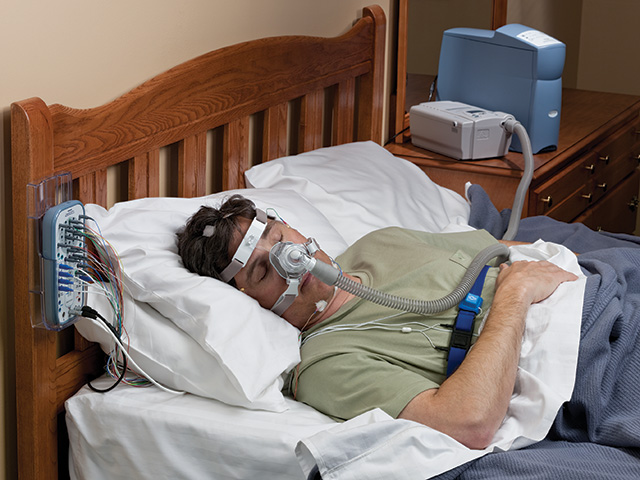Sleep Disorder Treatment
At Sleep Disorders Diagnosis Center, we treat all sleep disorders. While snoring is the most common complaint and sleep apnea the most common diagnosis, we offer a full-service medical sleep disorder practice for adults and children that includes our comprehensive Sleep Center for evaluation and diagnosis.
Many people are nervous about participating in a sleep study . Our goal is your good health. Our method is to help you feel comfortable in our setting and confident in our skill.
We offer the full range of sleep medicine services.
Consultation
This is an appointment with a Board-certified sleep doctor during which the physician will take a detailed history of your sleep problems, review your medication, take your family history and perform a brief physical examination to determine what the best treatment option is for you. If the doctor feels an overnight sleep study would help determine the sleep problem, we will work with your schedule to arrange a sleep study at our sleep lab .
Diagnostic Sleep Study
A polysomnogram is a common overnight sleep test that physicians often prescribe to patients with sleep disorders. The polysomnogram measures and records brain activity, eye movements, muscle activity, respiratory airflow, and heart rhythm during sleep, all important information that helps the physician diagnose and treat sleep disorders.
CPAP Titration Sleep Study
If the diagnostic study shows that you have sleep apnea , you may then be scheduled for a CPAP Titration Study. This helps determine the effective pressure required on a CPAP machine to eliminate snoring and sleep apnea. Sometimes this test is done on current CPAP users to ensure they are on adequate pressure and being effectively treated.
PAP Nap Testing
This is ideal for patients who are struggling with their CPAP usage either because they are not tolerating the CPAP or they are taking it off in the middle of the night. The testing is done during the day to troubleshoot pressure and mask-leak issues. Patients who are comfortable with their CPAP are more likely to use it as directed.
Multiple Sleep Latency Test (MSLT)
This is a daytime nap study which determines how sleepy you are by measuring how long it takes you to fall asleep and how soon you start dreaming. The test is performed after an overnight sleep study and is used to rule out narcolepsy.
Maintenance of Wakefulness Test (MWT)
This is a daytime nap study that tests your ability to stay awake and alert during the day. It is used extensively for public transportation drivers, pilots and others with similar issues.

What is a sleep study?
A sleep study is a painless evaluation of your sleep patterns. While you sleep in a comfortable bed in our sleep lab, we monitor your brain waves, eye movements, breathing patterns, oxygen levels, snoring, muscle tone, leg movements and heart rate. That information helps us determine if you have a sleep disorder and if we can help you sleep better.
Will I be hooked up with wires?
Yes. Your sleep technician will apply sensors or electrodes to monitor the activities that take place in your body and brain during sleep. Elastic belts are placed around your chest and abdomen to measure your breathing. A sensor is also placed on your finger or earlobe to monitor the level of oxygen in your blood and heart rate
How can I sleep with all of the sensors?
Your sleep technician will adjust everything to make you as comfortable as possible; most people quickly get used to the sensors and sleep reasonably well. Be sure to ask your sleep physician in advance if you have specific concerns about this.
Will the sensors hurt?
No. This is a painless and non-invasive testing procedure. Paste is applied to your skin and scalp to keep the electrodes in place, but it is easily removed with soap and warm water.
What if I have to go to the bathroom?
All the wires lead to a box that can be easily detached if you have to go to the restroom. The room has a microphone to call the sleep technician who will come in immediately and detach the box for you.
How should I prepare for my study?
It is important to avoid alcohol and caffeinated beverages the day of your study. Do not take any naps that day. If possible, shower and shampoo your hair before you arrive, but avoid using any skin creams or oils. Remove your nail polish.
How long is the sleep study?
We usually have people come in at 7:00pm pm and we end around 6 am.